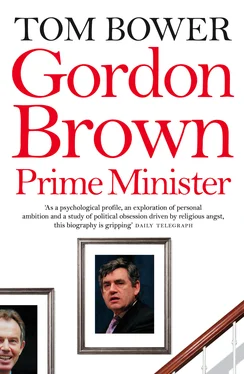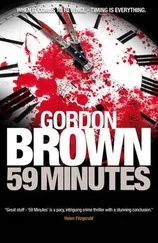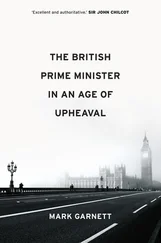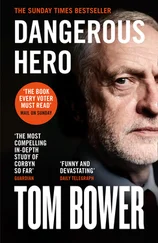Weeks after the election, over a drink in a Glasgow pub with Doug Henderson, then a regional organiser for the GMWU, Brown spoke about his experiences and about some of the other new MPs. Henderson had known Brown for ten years, discussing politics on platforms around Scotland and against each other on The Lion’s Share , a local television programme. ‘That Blair fellow,’ said Brown, ‘he’s quite clever.’
Although Brown was instinctively more left-wing than Blair, he benefited from the proximity of a sympathetic soulmate. During their frequent conversations, not least later during their journeys abroad, they discovered a mutual frustration about the party’s direction and a common bewilderment about the solution. But in his maiden speech on 27 July 1983, Brown revealed no ideological dilemmas. His theme was the plight of his unemployed constituents. In an engaging delivery, he described ‘a new arithmetic of depression and despair’ – the ‘tragic toll’ of mass unemployment: ‘The chance of a labourer getting a job in my constituency is 150 to 1 against. There is only one vacancy in the local careers office for nearly five hundred teenagers who have recently left school.’ He criticised the government for not only causing unemployment in the crumbling coal, linoleum and textile industries, but for penalising the helpless victims of those closures. There was heartfelt grief in his description of those in the desolate communities expecting redundancy and fearing permanent financial hardship. Ignoring their plight, he continued, the government proposed to reduce benefits while taunting the unemployed that new jobs were available, if only they looked. The government’s task, he said, was to create those new jobs: ‘The House was told in 1948 that the welfare state was created to take the shame out of need. Is that principle to be overthrown by an ever-increasing set of government assaults on the poor that are devoid of all logic, bereft of all morality and vindictive even beyond monetarism?’ Brown was pleased by the murmurs of approval his ardour evoked. In his opinion, only state intervention and the imposition of a minimum wage could help those at the bottom of the social ladder. The conviction socialist derided the notion that free markets and self enterprise were preferable to planning by Whitehall.
On the Conservative side there was respect for the feisty newcomer, but also some derision. Brown ignored the Tory riposte that Labour was responsible for unemployment in Fife. Jim Callaghan’s government had plunged the country into chaos, and now this young Scotsman was proposing to reintroduce the same discredited politics. Labour’s cure for ‘the sick man of Europe’ was similar to the Marxist dogma then crippling the communist countries of eastern Europe. Brown might win smiles by ridiculing the notion of the unemployed becoming self-reliant, if only by buying a ladder, bucket and cloth and offering themselves as window cleaners; he might arouse titters of laughter by taunting the Tories that ‘Up your ladder’ appeared to have replaced Norman Tebbit’s ‘On your bike’ speech; but the nation had now voted twice in succession against the legacy of Attlee, Wilson and Callaghan.
Brown was undeterred. To him, self-improvement was as repulsive as the government’s plan to persuade the young unemployed to accept lower wages or face a cut in their benefits if an offer of training was refused. ‘Essentially,’ he told the Commons, quoting confidential government documents leaked to him by a sympathiser, ‘the papers say that the DHSS are to inculcate good working habits in the unemployed. What the government would be better doing is bringing new jobs to the area.’
Penalising the personal behaviour of the working classes through taxation had been attacked in 1937 by Ernest Bevin, Attlee’s future foreign minister who was then leader of the TGWU. For Bevin and all socialists, the worst aspect of such retribution was the means tests to assess whether the poor should receive assistance from the state. The degradation of the inspections to assess poverty, argued Bevin, inhibited the poor both from saving and from seeking work. Forty-seven years later, Brown repeated the same arguments as an attack on the Conservative government’s review of universal payments of benefits to all, irrespective of wealth. In his opinion, even to consider targeting payments exclusively towards the poor was heresy. Means tests, he believed, were inhuman because they ‘ would deter theclaims of those most in need’. In his excitement he criticised the right-wing Adam Smith Institute on BBC TV’s Panorama on 10 December 1984 for, as he claimed, recommending the end of child benefit and the abolition of the welfare state. Sixteen months later, after difficult negotiations, the BBC apologised for broadcasting Brown’s erroneous statement. Brown was embarrassed. He prided himself on quoting carefully researched facts, and took exception to any accusation of mistakes or worse, distortion.
In London, his life beyond politics was limited. He shared a flat in the Barbican with Andrew, his younger brother, who was also employed as his personal assistant. He worked relentlessly, rarely appearing in the Commons bars or tea rooms to cultivate friendships. On Friday afternoons, long after most MPs had returned to their constituencies and homes, he sat alone in his cramped office, the floor covered in press releases, books and newspapers, speaking on the telephone. On Saturdays in Edinburgh he was occasionally seen with Marion Caldwell at parties, but he preferred that she remained out of sight. He liked drinking with his friends in pubs and especially working men’s clubs. There was a sincere fraternity in having a pint with workers who shared his love of the Labour Party and its heroes. He fumed against the reduction of grants to the Rosyth naval shipyard in his constituency, deriding proposals to privatise it and publishing a pamphlet attacking the arms trade and proposing that the yard should be converted for civilian use. He also opposed the closure of any coalmines, although they were often uneconomic, and caused many of those who worked in them to suffer fatal illnesses. On every social and economic argument he supported the hard, socialist solution. A test of those sentiments arose during the miners’ strike in March 1984.
Few doubted that Arthur Scargill, the National Union of Mineworkers’ leader, was intent on repeating the miners’ triumph against Edward Heath in 1974. He wanted to prove his power to protect miners’ livelihoods and to embarrass a Conservative government. In 1981 he had humiliated Thatcher by threatening a strike if the government closed down uneconomic mines. Having assessed that the stocks of coal were low, Thatcher retreated. But two years later the government had quietly accumulated sufficient coal stocks to withstand a strike of at least six months. As anticipated, on 1 March 1984 Scargill declared a strike in Yorkshire. Knowing that he would lose a national ballot, he organised strikes in militant localities across the country without organising proper votes. Flying pickets intimidated other miners to strike. The television pictures of fierce clashes between trade unionists and the police, resulting in thousands of injuries and arrests, raised the stakes. If Scargill won, the Thatcher government would be as vulnerable as Heath’s had been. Her advantages were preparation and sharp disagreements among the miners. The outcome was not inevitable.
Regardless of Arthur Scargill’s shortcomings, the miners’ plight became a human tragedy. Neil Kinnock refused to condemn the strikers, while Gordon Brown openly supported them, protesting against the government’s ‘vindictive cuts’ and refusal to pay benefits to their families. Instead of condemning the violence, he pleaded with the police and government to release imprisoned miners, and never publicly criticised Scargill despite the strike’s questionable legitimacy and the lack of support from workers in the power, steel and transport industries. On the picket lines he openly praised the miners despite being irked to be standing with their wives in the cold and rain, organising their communities’ survival, while some strikers were drinking in their clubs. At Christmas a trickle of English miners returned to work, isolating the militants. In March 1985, after one year, the strike collapsed. Brown, however, had never wavered. He earned the miners’ gratitude, accepting in appreciation gifts of miners’ lamps and certificates.
Читать дальше












